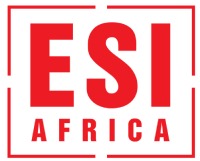Africa poised for nuclear energy leap
Several countries across the continent are all actively considering embarking on a nuclear energy programme to produce electricity
Nuclear energy is entering a pivotal moment in the global energy transition, says Sama Bilbao y León, Director General of the World Nuclear Association.
In an exclusive interview with ESI Africa at the recently concluded Africa Energy Week in Cape Town, South Africa, she argued that nuclear power is no longer in question – the real issue is how much and how fast it can be deployed.
“At a global level, policymakers, financiers, energy users and civil society are recognising the essential role of nuclear. If we want to meet our climate goals, secure energy independence and achieve socio-economic development, nuclear must be part of the solution,” said Bilbao y León.
Worldwide, governments are extending the life of existing reactors, upgrading units to produce more power and even restarting prematurely closed plants.
At the same time, new capacity is being added, particularly in Asia, which has doubled its nuclear generation in the past decade. Europe, North America, the Middle East and ASEAN states are also pursuing expansion, she said.
“The question of whether nuclear plays a role has been answered. The pressure is now on the industry to deliver.”
Africa ramps up nuclear ambitions
Turning to Africa, Bilbao y León noted that South Africa remains the continent’s pioneer, with decades of operating experience at the Koeberg nuclear power plant and plans to extend its life for 20 more years.
Egypt, meanwhile, is constructing four reactors at the El Dabaa nuclear power plant currently under constriction.
And Ghana, Rwanda, Kenya, Uganda and Nigeria, among others in Africa, are all actively considering embarking on a nuclear energy programme.
She added that Africa’s uranium resources give the continent strategic importance in the global nuclear value chain. Namibia and Niger, in particular, are key suppliers regardless of whether they pursue their own nuclear power programmes, she explained.
At the recently held Global Atomic Forum, convened during World Atomic Week (WAW 2025) in Moscow, Niger’s Minister of Mines Ousmane Abarchi called energy access a right, condemning decades of uranium exploitation and pledging deeper ties with Russia.
Long-term value of nuclear energy
Addressing common misconceptions, Bilbao y León stressed that nuclear power plants do not take “forever” to build.
Over the past 20 years, average construction times have been about five years, she said, citing the United Arab Emirates’ rise from zero to 25% of electricity produced through nuclear power in under 15 years.
Although upfront investment is high, nuclear technology provides reliable baseload energy for up to a century while supporting industrial applications beyond electricity, including steam for heating, metallurgy and petrochemicals.
“It’s not just the commercial value, but the jobs, socio-economic development and high-tech industries that co-locate with access to abundant 24/7 energy,” she said.
Public perception and finance
Bilbao y León acknowledged that nuclear’s reputation has been shaped by past incidents, but said attitudes are shifting.
Independent surveys curated by the Association, she pointed out, show a marked improvement in public perception worldwide, with more people recognising nuclear’s role in providing affordable, carbon-free energy.
On financing, she admitted that Africa faces systemic hurdles common to many infrastructure projects.
“There is nothing inherently riskier about nuclear compared with other large energy projects,” she said, emphasising the need to treat it on the same footing as other energy infrastructure such as solar and wind.
She argued that successful projects would build confidence for future investments, provided governments show bold leadership.
“Sometimes perfection is the enemy of good enough. Africa can deliver just as well as Europe, North America or Asia. It’s about taking the decision to move forward.” ESI
Cover photo: Sama Bilbao y León, Director General of the World Nuclear Association at Africa Energy Week (AEW). Source: AEW


